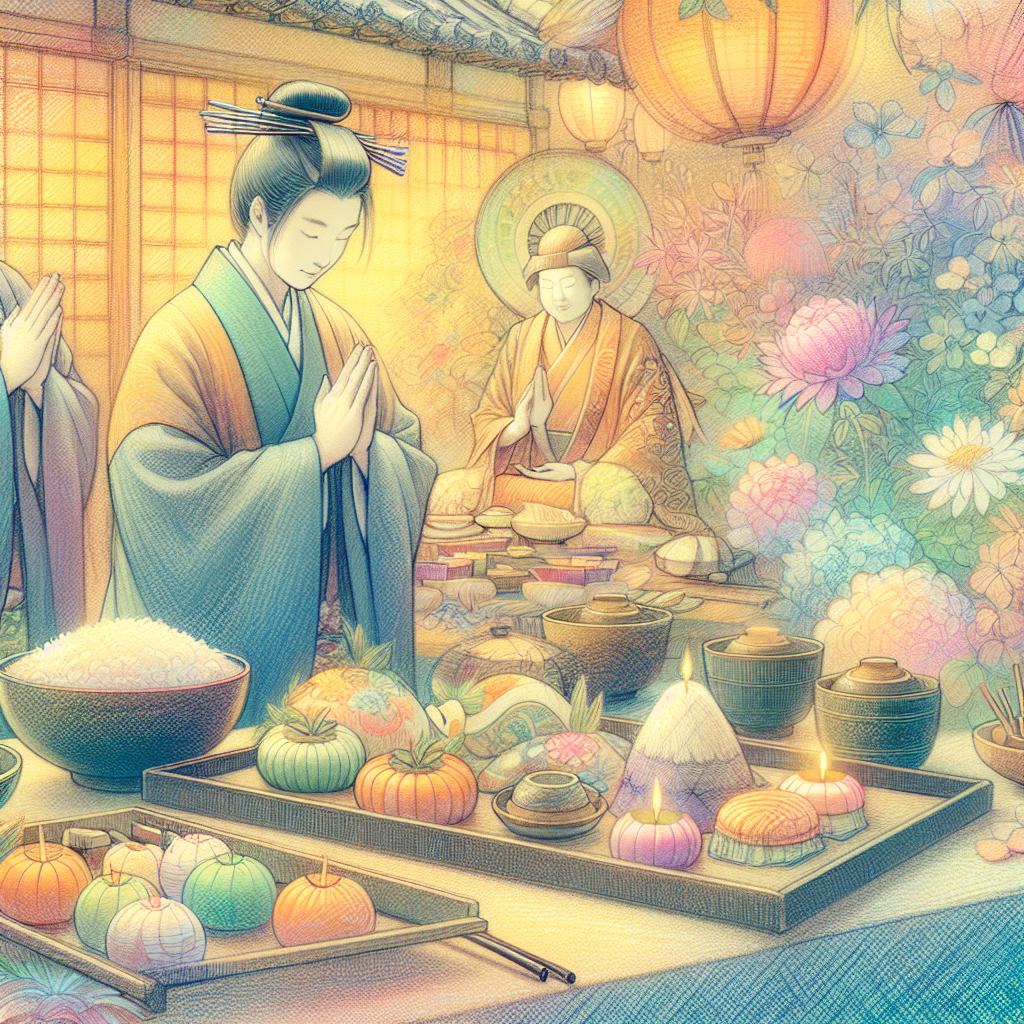Food as a Sacred Offering: The Intersection of Japanese Cuisine and Spiritual Beliefs
Japanese food culture is deeply rooted in a rich history and diverse traditions that reflect the philosophical beliefs of its people. In particular, Japanese cuisine transcends mere sustenance; it embodies significant rituals and spiritual dimensions. This exploration delves into the lesser-known aspects of Japan’s food culture through the lens of “food as a sacred offering.”
The Fusion of Japanese Cuisine and Sacredness
Japanese cuisine is not only celebrated for its visual beauty, but also for its taste, aroma, and the inherent power of the ingredients used. At the core is the philosophy of harmony with nature. For centuries, the Japanese have expressed gratitude for the blessings of nature, integrating them into their culinary practices. Dishes that honor the seasons evoke a sense of mystical power, connecting consumers to the rhythm of nature’s cycles.
Moreover, many aspects of Japanese cuisine are steeped in ritualistic elements derived from Shinto and Buddhism. Certain ingredients and dishes carry special meanings; for example, the black beans consumed during the New Year’s celebration symbolize purification and health wishes. Through these culinary traditions, the Japanese deepen their connection between nature and the divine.
The Spirituality of Ingredient Selection
In traditional Japanese cooking, there is an unparalleled emphasis on selecting ingredients. Utilizing fresh, locally-sourced produce reflects regional cultural roots. For instance, during autumn, seasonal delights such as chestnuts and sweet potatoes take center stage at the dinner table. The thoughtfulness behind selecting such ingredients influences not just the meal itself but profoundly impacts the lives and spirituality of the people. Choosing these ingredients fosters a sense of gratitude toward farmers and local communities.
Additionally, there exists a cultural consciousness of honoring the ingredients made possible by the cycle of life. The understanding that “we take life to sustain life” is deeply ingrained in Japan’s culinary customs. This sense of gratitude finds expression through cooking, transforming meals into sacred rituals.
The Ritualistic Significance of Dining
Dining in Japan serves as more than just a means to satisfy hunger; it creates a space for communication. Gathering around a table with family and friends fosters connections and becomes a venue for sharing memories. Such settings allow individuals to deepen their bonds and find spiritual solace through shared experiences.
Especially during annual events and festivals, special dishes play a crucial role in connecting people. For example, meals served during Coming-of-Age ceremonies or festive banquets at weddings celebrate significant life moments, embodying a ritual of new beginnings. These ceremonies remind the Japanese of the profound significance that meals hold in their lives.
The Quest for Spirituality in Japanese Cuisine and Future Perspectives
Thus, Japan’s culinary traditions reflect a deep spirituality in the choices of ingredients, cooking methods, and the meanings behind dining experiences. Food serves as more than just a physiological necessity; it is a vital “ritual” that enriches the spirit. This sentiment can be strongly felt through Japanese cuisine.
In the future, it is essential to carry forward the sacred spirit and culture embedded in Japanese cuisine to the next generation. By spreading a cultural ethos of gratitude for ingredients and the joy of meals, Japan’s rich culinary heritage can thrive and evolve. It is hoped that through Japanese cuisine, individuals will lead more spiritually fulfilling lives, deepening their appreciation for the world around them.


